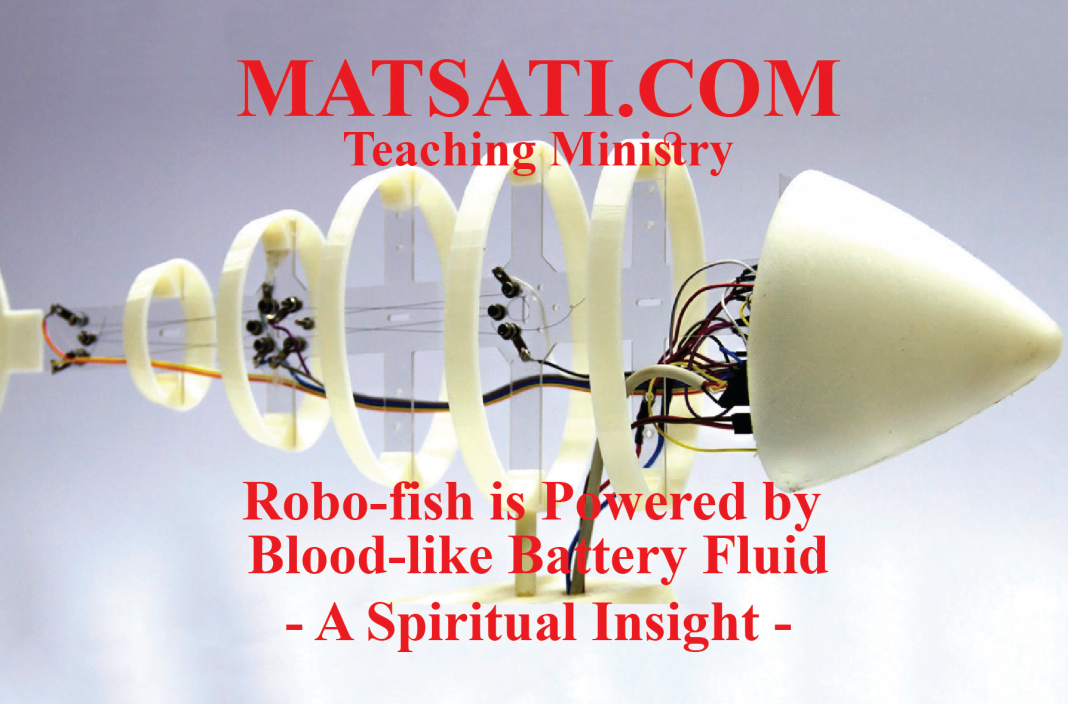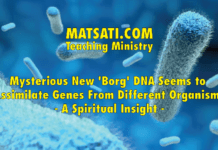Recently a team of engineers at Cornell’s Organic Robotics Laboratory manufactured a soft-bodied robotic fish powered by electric blood which serves as an energy source and a hydraulic fluid for propulsion. [1] Their research was published in the Journal Nature detailing how this system works. The premise behind this particular approach is due to the energy storage systems being the most critical limitations to robotic autonomy. Batteries size, weight, materials, and power density, cause a design constraint on robotics and what exactly they are capable of doing autonomously. The researchers used bio-inspired application of the blood system to develop a synthetic energy-dense circulatory system contained within the robot itself. They created a vascular system, that combines a hydraulic fluid and an electrolyte which geometrically increases the energy density of the robot enabling 36 hours of operation. The fish uses two hydraulic pumps that are interconnected to zinc-iodide flow cell batteries. One pump moves the tail by moving the fluid from one side of the tail to the other. The other pump moves fluid stored in the dorsal fins into the corresponding pectoral fins. The fish is relatively slow, it swims at a rate of 1.5 body lengths per minute, so there is room for improvement. The idea of soft-bodied robots is not a new idea, but designing a hydraulic fluid which also functions as an energy supply is new. By the use of this fluid-blood-battery liquid system, the mass of the robot is significantly reduced increasing the energy density due to a lower weight of the total system. The future of this type of robotics includes developing autonomous aquatic robots with the potential for marine exploration (i.e. coral reefs), inspection of pipelines, and underwater cables.
References
- Aubin, C. A.; Choudhury, S.; Jerch, R.; Archer, L. A.; Pikul, J. H.; Shepherd, R. F., Electrolytic vascular systems for energy-dense robots. Nature 2019, https://www.nature.com/articles/d41586-019-01951-8
The Spiritual insight we receive from this type of research is related to the new engineering design of this robot and the blood that is a necessary part of living creatures. The obvious connection is to what we read in the Torah from Vayikra / Leviticus 17 which states the following.
Vayikra / Leviticus 17:1-14
17:1 Then the Lord spoke to Moses, saying, 17:2 ‘Speak to Aaron and to his sons and to all the sons of Israel and say to them, ‘This is what the Lord has commanded, saying, 17:3 ‘Any man from the house of Israel who slaughters an ox or a lamb or a goat in the camp, or who slaughters it outside the camp, 17:4 and has not brought it to the doorway of the tent of meeting to present it as an offering to the Lord before the tabernacle of the Lord, bloodguiltiness is to be reckoned to that man. He has shed blood and that man shall be cut off from among his people. 17:5 ‘The reason is so that the sons of Israel may bring their sacrifices which they were sacrificing in the open field, that they may bring them in to the Lord, at the doorway of the tent of meeting to the priest, and sacrifice them as sacrifices of peace offerings to the Lord. 17:6 ‘The priest shall sprinkle the blood on the altar of the Lord at the doorway of the tent of meeting, and offer up the fat in smoke as a soothing aroma to the Lord. 17:7 ‘They shall no longer sacrifice their sacrifices to the goat demons with which they play the harlot. This shall be a permanent statute to them throughout their generations.’’ 17:8 ‘Then you shall say to them, ‘Any man from the house of Israel, or from the aliens who sojourn among them, who offers a burnt offering or sacrifice, 17:9 and does not bring it to the doorway of the tent of meeting to offer it to the Lord, that man also shall be cut off from his people. 17:10 ‘And any man from the house of Israel, or from the aliens who sojourn among them, who eats any blood, I will set My face against that person who eats blood and will cut him off from among his people. 17:11 ‘For the life of the flesh is in the blood, and I have given it to you on the altar to make atonement for your souls; for it is the blood by reason of the life that makes atonement.’ 17:12 ‘Therefore I said to the sons of Israel, ‘No person among you may eat blood, nor may any alien who sojourns among you eat blood.’ 17:13 ‘So when any man from the sons of Israel, or from the aliens who sojourn among them, in hunting catches a beast or a bird which may be eaten, he shall pour out its blood and cover it with earth. 17:14 ‘For as for the life of all flesh, its blood is identified with its life. Therefore I said to the sons of Israel, ‘You are not to eat the blood of any flesh, for the life of all flesh is its blood; whoever eats it shall be cut off.’ (NASB, א וַיְדַבֵּר יְהוָֹה אֶל-מֹשֶׁה לֵּאמֹר: ב דַּבֵּר אֶל-אַהֲרֹן וְאֶל-בָּנָיו וְאֶל כָּל-בְּנֵי יִשְֹרָאֵל וְאָמַרְתָּ אֲלֵיהֶם זֶה הַדָּבָר אֲשֶׁר-צִוָּה יְהוָֹה לֵאמֹר: ג אִישׁ אִישׁ מִבֵּית יִשְֹרָאֵל אֲשֶׁר יִשְׁחַט שׁוֹר אוֹ-כֶשֶֹב אוֹ-עֵז בַּמַּחֲנֶה אוֹ אֲשֶׁר יִשְׁחָט מִחוּץ לַמַּחֲנֶה: ד וְאֶל-פֶּתַח אֹהֶל מוֹעֵד לֹא הֱבִיאוֹ לְהַקְרִיב קָרְבָּן לַיהֹוָה לִפְנֵי מִשְׁכַּן יְהוָֹה דָּם יֵחָשֵׁב לָאִישׁ הַהוּא דָּם שָׁפָךְ וְנִכְרַת הָאִישׁ הַהוּא מִקֶּרֶב עַמּוֹ: ה לְמַעַן אֲשֶׁר יָבִיאוּ בְּנֵי יִשְֹרָאֵל אֶת-זִבְחֵיהֶם אֲשֶׁר הֵם זֹבְחִים עַל-פְּנֵי הַשָּׂדֶה וֶהֱבִיאֻם לַיהֹוָה אֶל-פֶּתַח אֹהֶל מוֹעֵד אֶל-הַכֹּהֵן וְזָבְחוּ זִבְחֵי שְׁלָמִים לַיהוָֹה אוֹתָם: ו וְזָרַק הַכֹּהֵן אֶת-הַדָּם עַל-מִזְבַּח יְהֹוָה פֶּתַח אֹהֶל מוֹעֵד וְהִקְטִיר הַחֵלֶב לְרֵיחַ נִיחֹחַ לַיהוָֹה: ז וְלֹא-יִזְבְּחוּ עוֹד אֶת-זִבְחֵיהֶם לַשְּׂעִירִם אֲשֶׁר הֵם זֹנִים אַחֲרֵיהֶם חֻקַּת עוֹלָם תִּהְיֶה-זֹּאת לָהֶם לְדֹרֹתָם: [חמישי] [שלישי כשהן מחוברין] ח וַאֲלֵהֶם תֹּאמַר אִישׁ אִישׁ מִבֵּית יִשְֹרָאֵל וּמִן-הַגֵּר אֲשֶׁר-יָגוּר בְּתוֹכָם אֲשֶׁר-יַעֲלֶה עֹלָה אוֹ-זָבַח: ט וְאֶל-פֶּתַח אֹהֶל מוֹעֵד לֹא יְבִיאֶנּוּ לַעֲשֹוֹת אֹתוֹ לַיהוָֹה וְנִכְרַת הָאִישׁ הַהוּא מֵעַמָּיו: י וְאִישׁ אִישׁ מִבֵּית יִשְֹרָאֵל וּמִן-הַגֵּר הַגָּר בְּתוֹכָם אֲשֶׁר יֹאכַל כָּל-דָּם וְנָתַתִּי פָנַי בַּנֶּפֶשׁ הָאֹכֶלֶת אֶת-הַדָּם וְהִכְרַתִּי אֹתָהּ מִקֶּרֶב עַמָּהּ: יא כִּי-נֶפֶשׁ הַבָּשָֹר בַּדָּם הִוא וַאֲנִי נְתַתִּיו לָכֶם עַל-הַמִּזְבֵּחַ לְכַפֵּר עַל-נַפְשֹׁתֵיכֶם כִּי-הַדָּם הוּא בַּנֶּפֶשׁ יְכַפֵּר: יב עַל-כֵּן אָמַרְתִּי לִבְנֵי יִשְֹרָאֵל כָּל-נֶפֶשׁ מִכֶּם לֹא-תֹאכַל דָּם וְהַגֵּר הַגָּר בְּתוֹכֲכֶם לֹא-יֹאכַל דָּם: יג וְאִישׁ אִישׁ מִבְּנֵי יִשְֹרָאֵל וּמִן-הַגֵּר הַגָּר בְּתוֹכָם אֲשֶׁר יָצוּד צֵיד חַיָּה אוֹ-עוֹף אֲשֶׁר יֵאָכֵל וְשָׁפַךְ אֶת-דָּמוֹ וְכִסָּהוּ בֶּעָפָר: יד כִּי-נֶפֶשׁ כָּל-בָּשָֹר דָּמוֹ בְנַפְשׁוֹ הוּא וָאֹמַר לִבְנֵי יִשְֹרָאֵל דַּם כָּל-בָּשָֹר לֹא תֹאכֵלוּ כִּי נֶפֶשׁ כָּל-בָּשָֹר דָּמוֹ הִוא כָּל-אֹכְלָיו יִכָּרֵת:)
The Torah recognizes the significance of the blood which states that it contains the life of a creature, and how the blood is used to make atonement for the soul. (Vayikra / Leviticus 17:11) The life that is “in the blood” was reserved for sacrificial atonement upon the altar of HaShem (כִּי נֶפֶשׁ הַבָּשָׂר בַּדָּם הִוא). Now, the significance of the blood is revealed to us in the story of the Exodus within the nation of Israel that the nation of Israel was “born” by means of the blood of the Passover lamb, the blood which was spread upon the lintel and the door posts. In addition to this, the Passover was a means for the nation of Israel to receive the revelation given at Sinai. The revelation at Sinai led to the establishment of the ritual expression of atonement in a system that required the shedding of the blood of sacrificial animals at the entrance to the Tabernacle. This is so significant that the Lord God says in Vayikra / Leviticus 17:3 ‘Any man from the house of Israel who slaughters an ox or a lamb or a goat in the camp, or who slaughters it outside the camp, 17:4 and has not brought it to the doorway of the tent of meeting to present it as an offering to the Lord before the tabernacle of the Lord, bloodguiltiness is to be reckoned to that man. He has shed blood and that man shall be cut off from among his people. (NASB) In addition to this, the Mishnah Pesachim 10:6 interprets the Passover wine as a metaphor for blood that seals a covenant between God and his people. Therefore, according to the Written and the Oral Torah, we are told the life is in the blood which seals the covenant of God. The cup symbolizes identifying with the life and redemptive mission of the Mashiach. Considering the scientific research and the engineering design of pumps that move the hydraulic/electric fluid of the robotic fish, we too have a pump, it is called our heart, and the heart is hebraically known as the center of our thoughts, the source of both good and evil. King Solomon wrote in Mishley / Proverbs 4:23 Watch over your heart with all diligence, For from it flow the springs of life. (NASB, כג מִכָּל-מִשְׁמָר נְצֹר לִבֶּךָ כִּי-מִמֶּנּוּ תּוֹצְאוֹת חַיִּים:) In the Hebrew Scriptures, the Law of God (Torat Adonai) refers to the revelation of God’s will for human beings to live rightly before Him in light of the reality of His existence. It is because of this, the Torah is understood to generally refer to the “moral law” as an imperative for human reason, to live with justice, with a duty to do what is right, and to love our neighbor, and such similar universal principles that God has laid out according to His Word. When we think upon these things, we get a sense of alarm due to our own moral condition being revealed. The voice of conscience is a witness that we have violated the standards of love, decency, and justice in our lives. God has given all of us an intuitive sense of right and wrong. From both an external and internal sense, we would be condemned by the verdict of the law. It is for this reason the Lord God Almighty has given the life in the blood to make atonement for our souls. This is coupled to the mercy of God in the Torah as the Scriptures introduce the concept of divine grace (chesed, mercy, lovingkindness), deliverance, and redemption, that is obtained by faith! The impurity that is from within (sin), that proceeds from the heart, is the purpose of God’s sacrificial love towards us in that He gave His Son Yeshua the Messiah to make atonement for our souls. He removed the curse by His grace/mercy and love. By the reason of the Torah, we are given this opportunity through mercy and repentance to call upon the name His Son Yeshua the Messiah. Paradoxically, we confess our inability to keep the mitzvot given to us according to the Torah, and seek the power of God by His Spirit to overcome sin in our lives. Through the Messiah, we receive the everlasting kapporah (atonement) through the sacrificial death of Yeshua as the Lamb of God who takes away the sins of the world (John 1:29). The blood of the lamb was given such that we might inherit the promises of God. The Torah therefore has a deeper covenantal purpose, directing us to God’s Anointed One through whom we receive both the promises of God and the Peace that surpasses all understanding!









